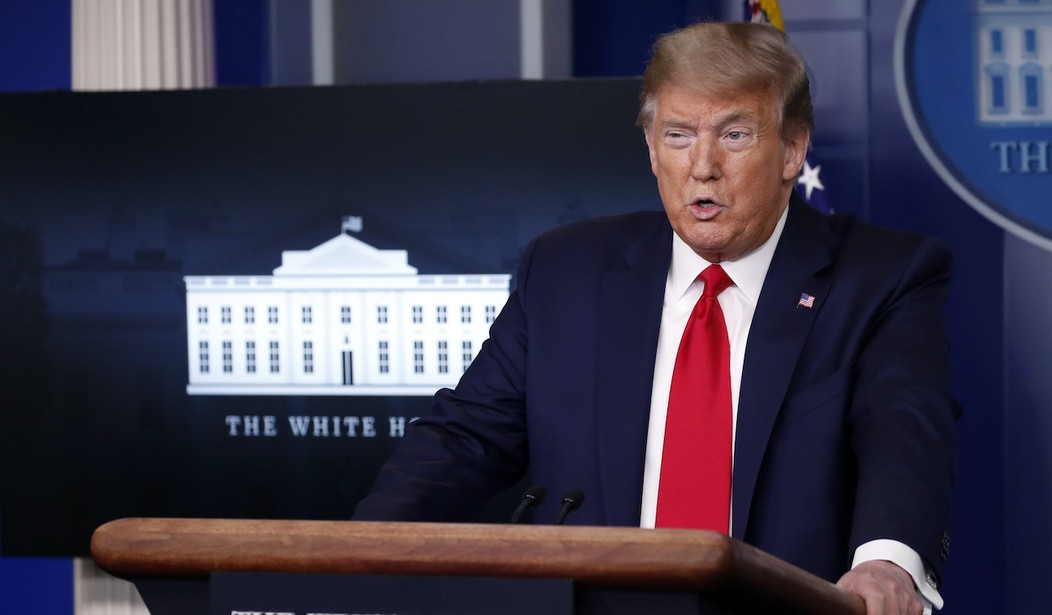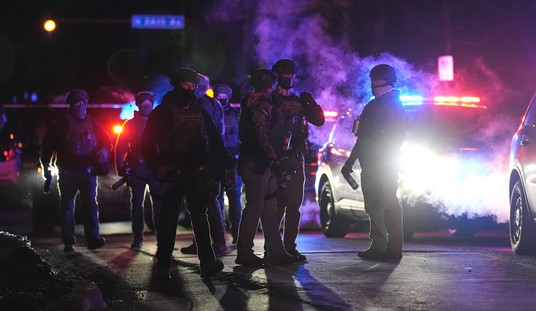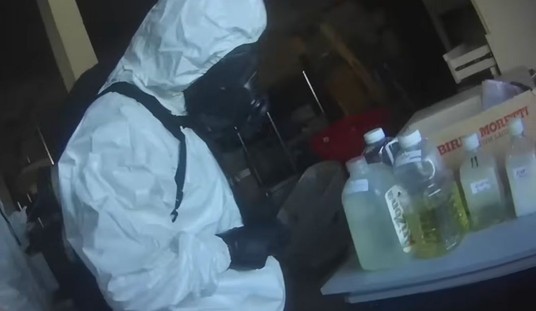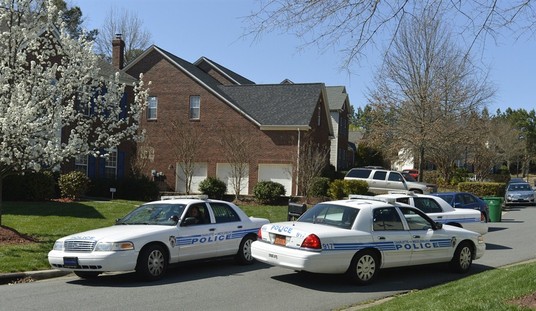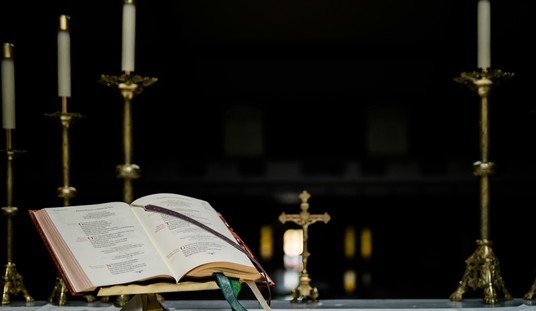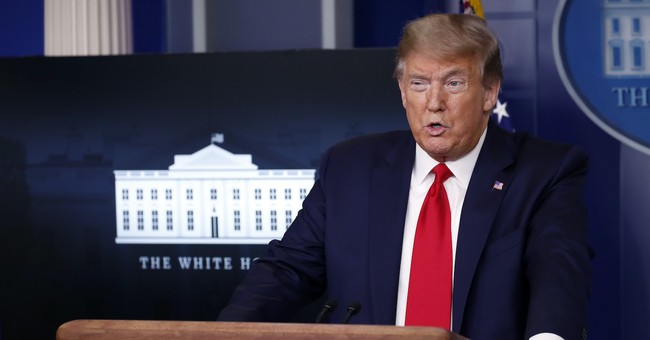
President Donald Trump speaks about the coronavirus in the James Brady Press Briefing Room at the White House, Monday, April 13, 2020, in Washington. (AP Photo/Alex Brandon)
If Barack Obama stood at the podium and declared that he had the right to total authority in the midst of a national emergency, the right would bring forth a wave of righteous fury the like of which had never been seen before, and rightfully so.
We would make the argument, very loudly, that our rights don’t come from Obama. They don’t come from any president, nor do they come from government. They come from God, and God is the highest authority, not just in the land, but the entire universe. Obama doesn’t trump God.
President Donald Trump doesn’t trump God either.
Yet, during Monday’s coronavirus press briefing, Trump made the claim that the states can’t do anything without the approval of the president and that his “authority is total” during this national emergency.
I like Trump. I think he’s the greatest president since Reagan. Yet my loyalties aren’t to Trump, it’s to the ideals of freedom that our Republic represents. As such, when even someone I’m a fan of steps forward to say their authority is absolute, it behooves me to step forward and deny him that authority. That goes for the rest of us, as well.
To be clear, Trump does not have that level of authority, even during a crisis. As law professor John Yoo explains at National Review, Trump does have the power to do many things from his position, but ultimately the states — which are solo governments unto themselves — decide what the state does:
But the federal government does not have that power. The Constitution’s grant of limited, enumerated powers to the national government does not include the right to regulate either public health or all business in the land. Congress enjoys the authority to “regulate Commerce with foreign Nations, and among the several States.” This gives Washington, D.C. an important, yet supporting, role in confronting the pandemic. It can bar those who might be infected from entering the United States or traveling across interstate borders, reduce air and road traffic, and even isolate whole states.
But our federal system reserves the leading role over public health to state governors. States possess the “police power” to regulate virtually all activity within their borders. As the Supreme Court has recognized, safeguarding public health and safety presents the most compelling use of state power. Only the states can impose quarantines, close institutions and businesses, and limit intra-state travel. Democratic governors Gavin Newsom in California, Andrew Cuomo in New York, and J.B. Pritzker Illinois imposed their states’ lockdowns, and only they will decide when the draconian policies will end.
In other words, someone like Governor Greg Abbott of Texas is the true leader of Texas and his word on Texas matters is final. If a president tells Abbott that Texas must do XYZ, all Abbott has to do is say “no,” and if Abbott isn’t engaging in unconstitutional actions, that will be that. However, even Abbott’s power isn’t absolute. He answers to Texans who can decide to keep him or lose him based on his job performance.
This is called “federalism” and it’s the system our government is based upon.
So, what can the federal government do? As Yoo writes, Congress “can control commerce that crosses state lines, and even prohibit wholly intrastate activity that affects the national markets. It cannot, however, force individuals and businesses to engage in business in the first place.”
But even enforcing that would be next to the federal government not having the resources to enforce such a command, and laws forbidding the federal government from commandeering local leaders in order to use their resources:
When the federal and state governments have overlapping, competing powers, such as over economics or crime, they further must rely on their own resources for enforcement — which makes any White House command virtually impossible to carry out. In another set of federalism cases, these decided by the Rehnquist Court, a conservative majority forbade Congress from “commandeering” state officials into enforcing federal commands. If the federal government were to decide to re-open all businesses, it could call upon only on its own law enforcement officials to execute the policy. Washington simply does not have enough resources to manage such a vast task; the FBI, the closest we have to a national police force, has fewer agents than the NYPD has sworn officers.
This doesn’t make Trump altogether powerless, but it does mean he’ll have to use finesse over brute strength in order to get our economy rolling again. He’ll have to convince the governors to do things as he has no power to force them.
So his power isn’t absolute.
Some of my readers who are big Trump fans may find themselves angered by this article, but in truth, it should bring you comfort. Keep in mind that while we still very likely have four more years of Trump being in office, he won’t be president forever. Moreover, Republicans won’t be camping out in the White House in perpetuity.
At some point, a statist is going to get elected and will try to expand his authority as statists are wont to do. In that moment, we’ll be glad that the same rules that were in place to limit Trump’s power are in place to limit the authoritarian’s power, as well.

